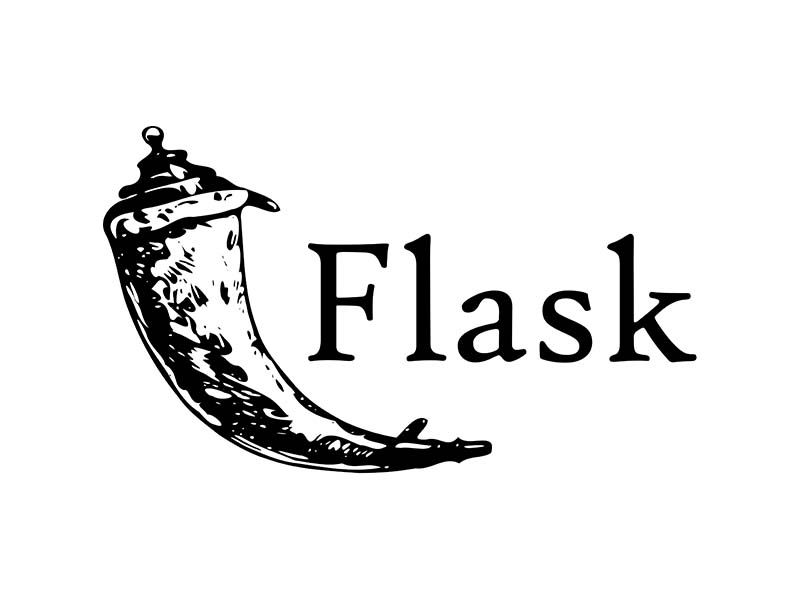Flask 3 Release
Flask 3.0 release is out - this article highlights the latest changes and also provides a curated list of free starters that use v3.

Hello Coders!
As announced on the official Flask site, the Flask 3.x Release is out. For newcomers, Flask is a lightweight WSGI web application framework. It is designed to make getting started quick and easy, with the ability to scale up to complex applications.
Flask v3 Release Changes
Release Date 2023-09-30- Remove previously deprecated code. #5223
- Deprecate the version attribute. Use feature detection, or importlib.metadata.version("flask"), instead. #5230
- Restructure the code such that the Flask (app) and Blueprint classes have Sans-IO bases. #5127
- Allow self as an argument to url_for. #5264
- Require Werkzeug >= 3.0.0.
The complete Release Note for Flask v3 can be found here.
The below section provides a curated list of open-source starters that use already Flask 3
Flask v3 Sample
Open-source Flask/Jinja Template provided by AppSeed on top of Soft UI Dashboard, a modern Bootstrap 5 dashboard design.
- 👉 Flask v3 Sample - Source Code
- 🚀 Get Support from the product creators

Flask v3 Material Kit
Open-source Flask/Jinja Template provided by AppSeed on top of Material Kit, a modern Bootstrap 5 design.
The project is a super simple Flask project WITHOUT database, ORM, or any other hard dependency - Design from Creative-Tim.
👉 Flask v3 Material Kit - Source Code
Flask v3 Volt Dashboard
Open-source Flask/Jinja Template provided by AppSeed on top of Volt Dashboard, a modern Bootstrap 5 dashboard design.
The project is a super simple Flask project WITHOUT database, ORM, or any other hard dependency - Design from Themesberg.
👉 Flask v3 Volt Dashboard - Source Code
✅ What IS Flask
Flask is a micro web framework for building web applications in Python. It is designed to be lightweight and simple, providing the essential tools and features needed to create web applications without imposing a lot of overhead or unnecessary complexity. Flask is often described as a "micro" framework because it doesn't include a lot of built-in functionality, but it allows developers to easily extend and customize it as needed.
Key features and concepts of Flask include:
Routing:
Flask allows you to define URL routes for your application, specifying which functions should be called when a particular URL is accessed. This makes it easy to create different views and handle different HTTP methods (GET, POST, etc.) for various parts of your application.
Template rendering
Flask includes a built-in template engine (Jinja2) that enables you to generate HTML dynamically by combining templates with data from your Python code. This separates the presentation layer from the application logic.
HTTP request handling
Flask provides a convenient way to access data from HTTP requests (e.g., form data, query parameters) and to send HTTP responses (e.g., HTML pages, JSON data).
URL building
Flask has a URL-building system that allows you to generate URLs for different routes in a consistent and efficient manner.
Extensibility
Flask is designed to be easily extensible with various extensions and libraries. You can add functionalities like database integration, user authentication, and more by using Flask extensions or third-party packages.
Micro and minimalistic
Flask doesn't impose a specific structure on your project, which gives you the flexibility to organize your code as you see fit. This minimalistic approach allows developers to choose the components they need for their specific project.
Lightweight
Flask's simplicity makes it a great choice for beginners and for small to medium-sized projects. It has a small learning curve and clear and concise documentation.
✅ In Summary
While Flask is minimalistic by design, it has a strong and active community that has developed a wide range of extensions and plugins to enhance its functionality. These extensions can be easily integrated into Flask applications to add features like user authentication, database integration (e.g., SQLAlchemy), and more.
Overall, Flask is a popular choice for developers who want to quickly build web applications in Python with a focus on simplicity and flexibility.
✅ Resources
- 👉 Access AppSeed and start your next project
- 👉 Deploy Projects on Aws, Azure, and DO via DeployPRO
- 👉 Create landing pages with Simpllo, an open-source site builder
- 👉 Django App Generator - A 2nd generation App Builder